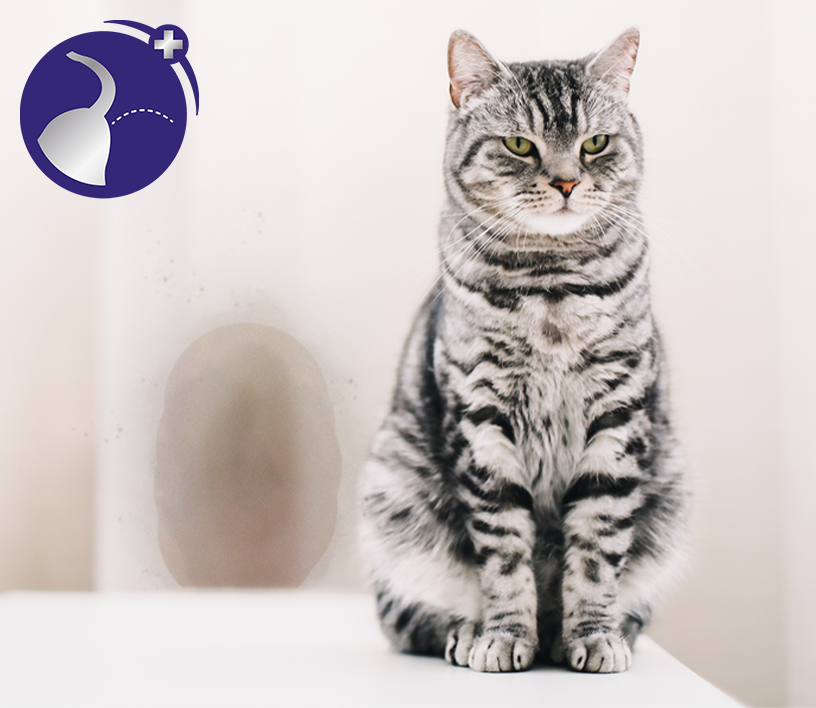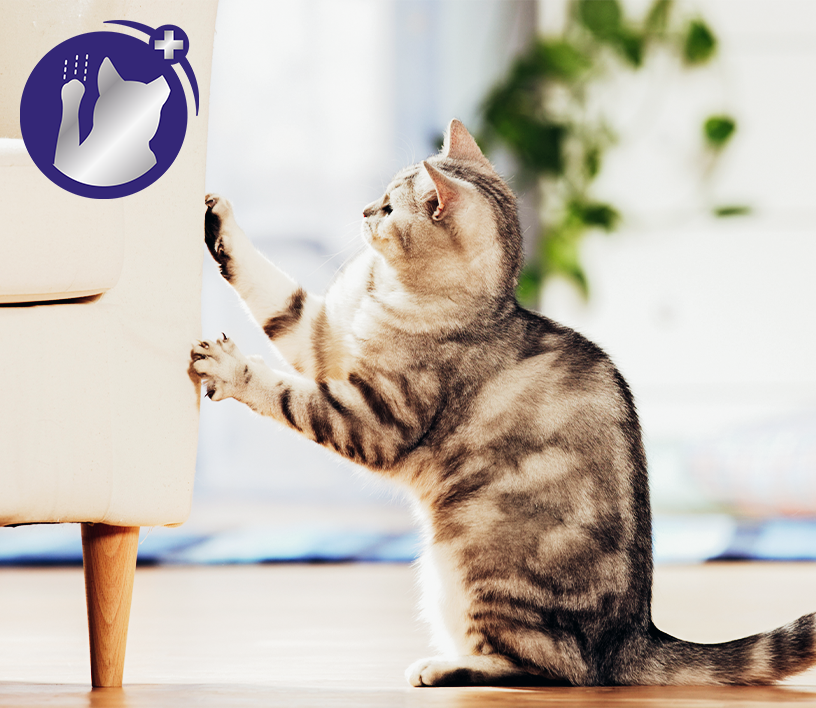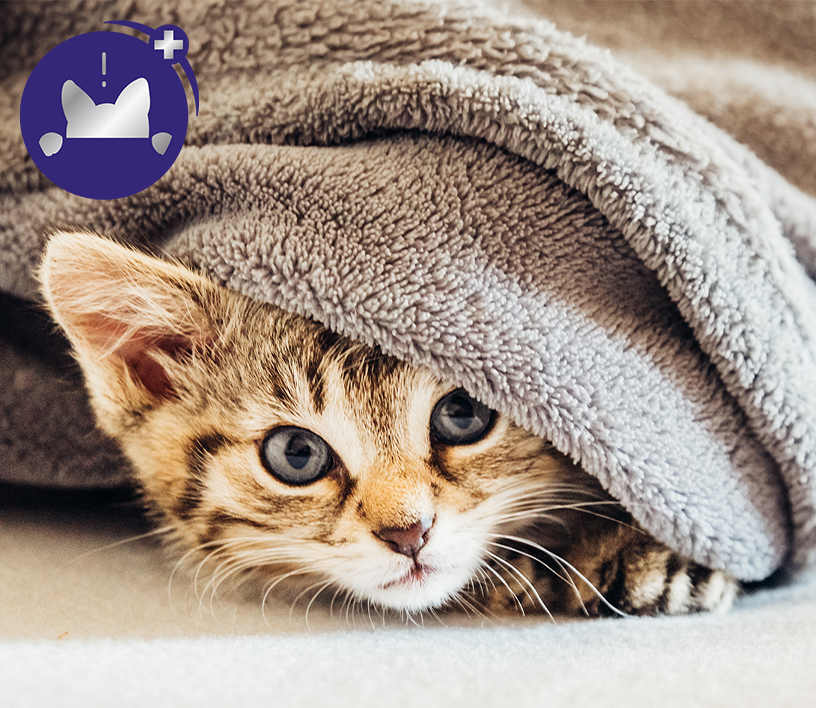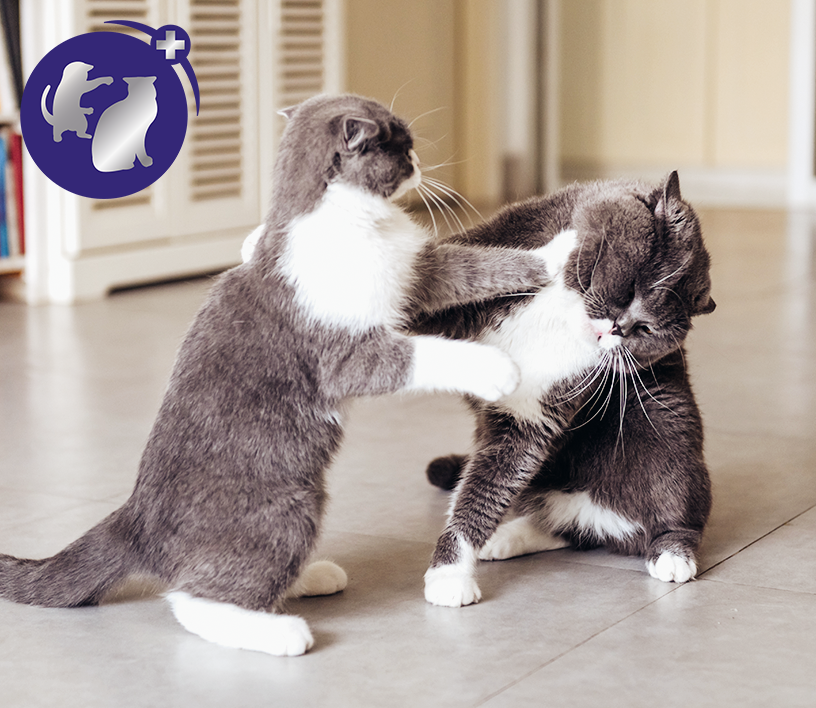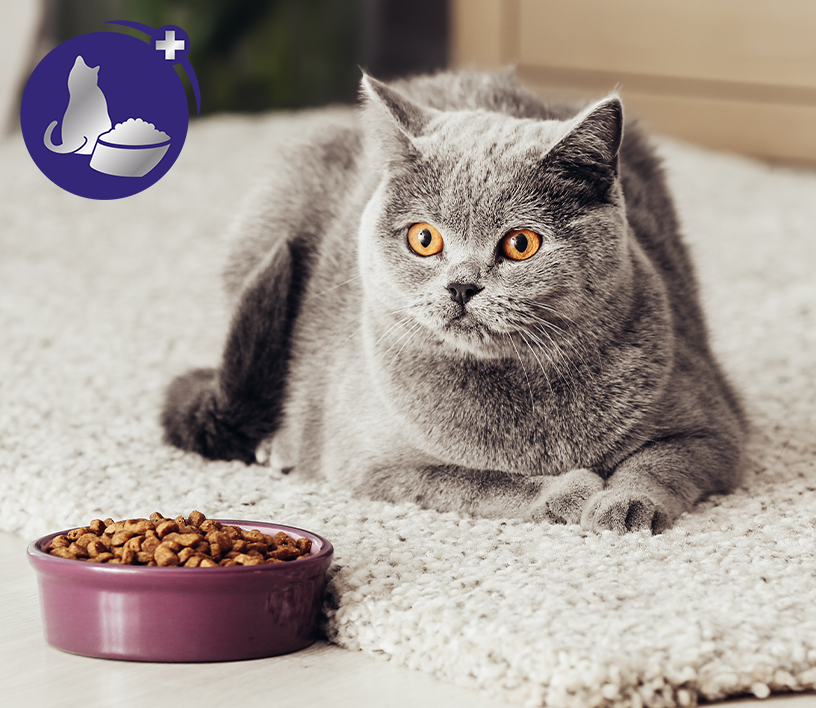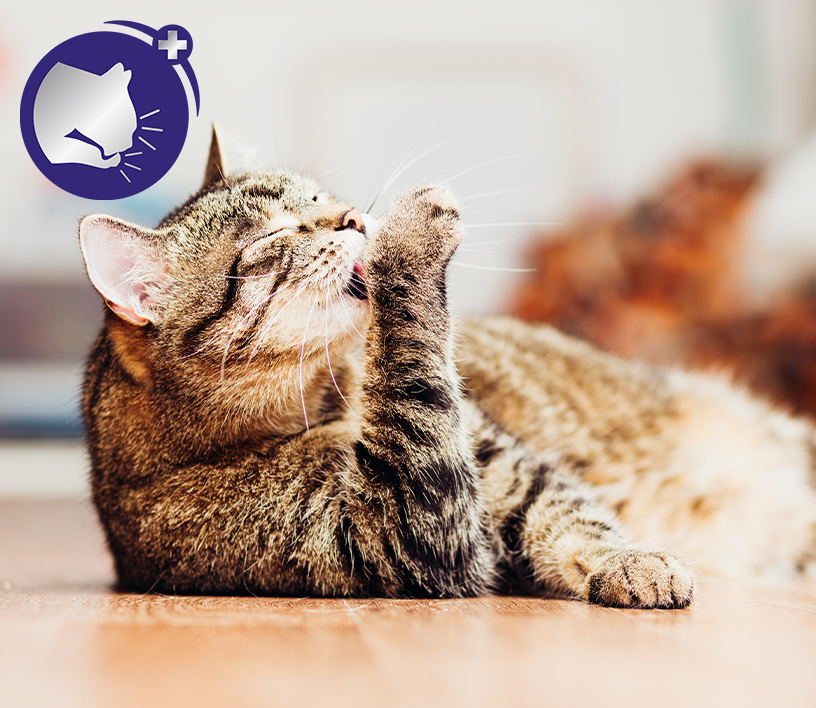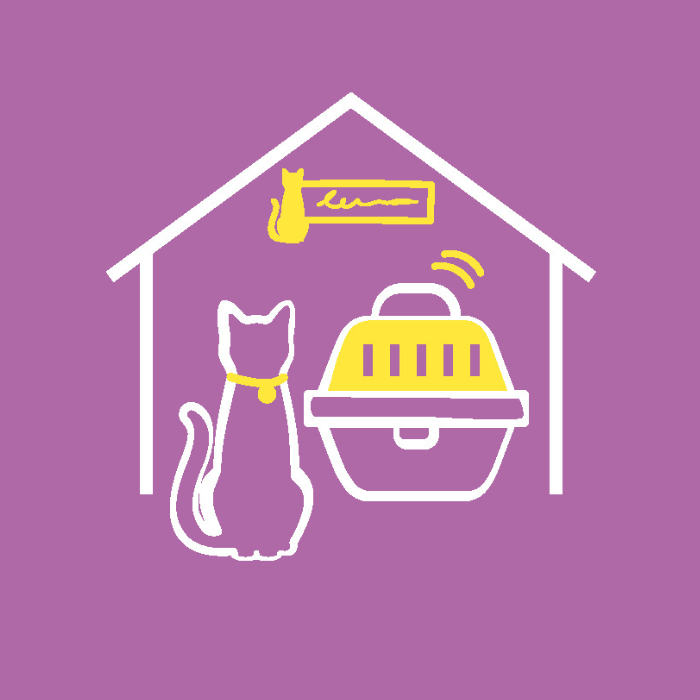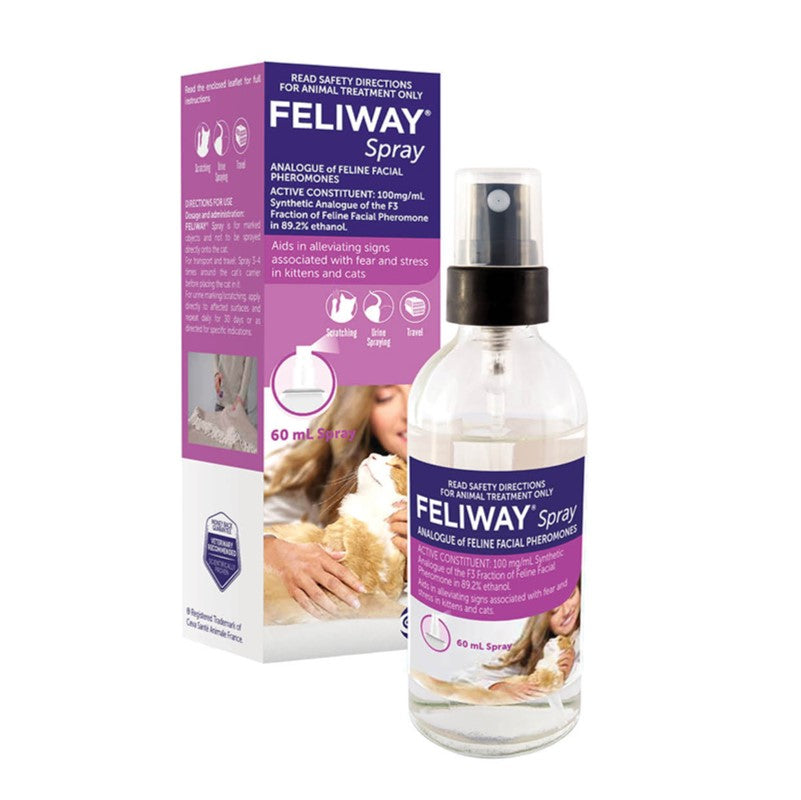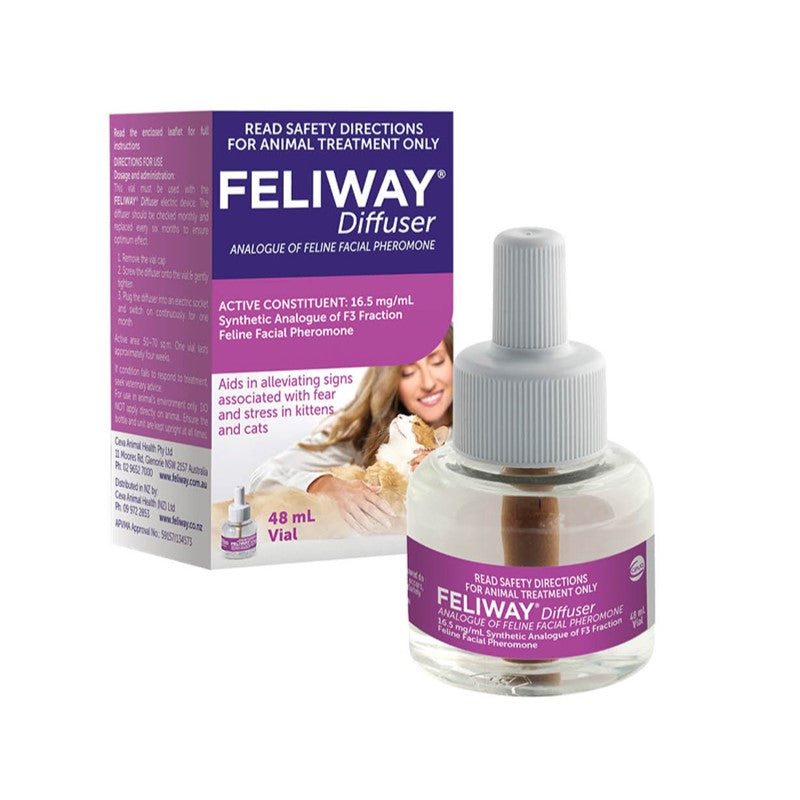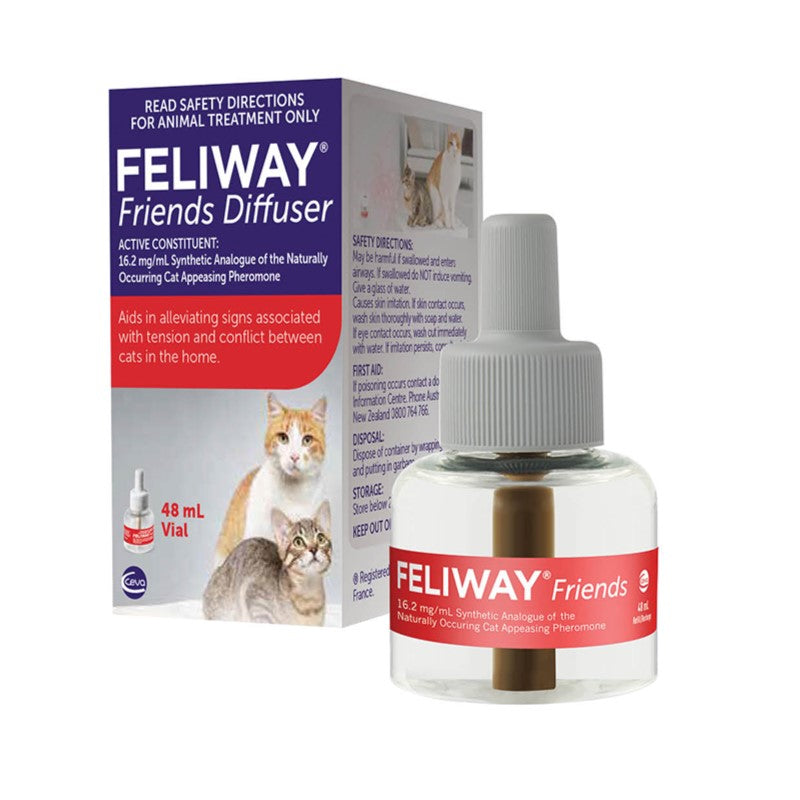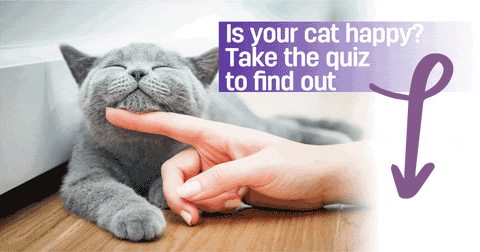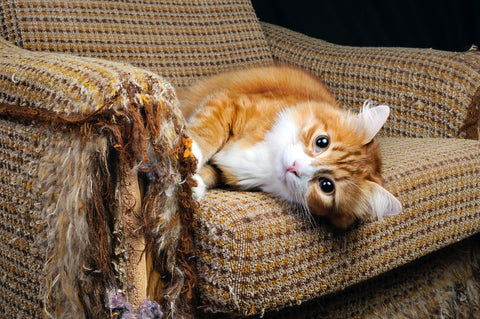How Can You Calm An Anxious Cat?

We know it can be concerning when your kitty doesn’t seem their usual self!
If your pet’s behaviour has changed and they’re showing signs of stress or anxiety, it’s important to find out why, and help your pet get back to their usual purrrfect self!
Luckily there are lots of things you can do to help an anxious or stressed kitty!
How Can You Calm An Anxious Cat?
Identify the cause of stress
If your pet is stressed, worried or anxious, there’s usually a cause behind their behaviour. Working to identify the reason your pet feels anxious is the first step to helping them.
Consider if anything has changed for your pet recently. Have you moved house, introduced other new pets, or are there new people in their environment? Are there any loud noises nearby (such as roadworks, or a new appliance such as a washing machine) that could be scaring your kitty? Even new food or a change in your pet’s routine could be enough to concern them!
If you can, try to remove or amend any causes of stress that may be affecting your cat, and reassure them that there’s nothing to worry about!
Check kitty resources
Does your kitty have the access they need to their own food, water, litter tray and scratching post ? If they can’t easily get to their resources - or if another cat is using them, or blocking their access in a multi-cat household - this can be a trigger for anxious behaviour.
It is also important that your pet has access to the space and hiding spots they need. If there are not enough places for your pet to escape to for some quiet alone time, they can easily feel concerned! Make sure there are enough resources for each cat in your house (at least one of each resource for each kitty), that areas such as litter trays and food bowls are regularly cleaned, and that there is enough space and access to keep your kitties happy!
Expose your kitty to a variety of experiences from a young age
If your kitty isn’t used to lots of different situations, they can find new things much scarier! Pets who were exposed to a range of situations, noises and people when they were kittens will find it much easier as adults to adapt and stay calm in new situations, or when faced with stress.
If possible, try to socialise your cat, sharing a range of different stimuli with them when they are still young. Be aware of their body language and stay within their comfort zone. You may end up with a cooler, calmer kitty as a result!
Make sure your pet is healthy
If your pet’s behaviour has changed very suddenly, it’s important to check that they are not suffering from any kind of illness or pain. If your kitty is unwell, this can cause them to feel anxious, and result in worried or stressed behaviours. It’s always best to check with a vet if your pet’s behaviour changes - especially if they go off their food as this can be dangerous for your cat.
Give lots of fuss - but only if your pet wants it!
Sometimes your kitty just needs a little reassurance! Lots of fuss, cuddles, play and love are important for your cat to feel safe and secure at home, so be sure to have regular playtimes and fuss times! A routine will also be helpful and reassuring for your cat and help them to feel relaxed. Try to always feed and play with your pet at the same times each day, so they know what to expect.
However, you should never force your pet to play with you or be petted if they don’t want fuss! Forcing your pet to be near you when they just want some quiet time will make them feel stressed - the opposite of what you want! Always let your pet come to you, and pause regularly for a consent test to see if they continue the interaction or retreat when they want to.
Watch your pet’s body language
How does your kitty hold themselves? Are their ears upright and interested, or back or flat to their head? You can learn a lot about how your cat is feeling from their body language, so watch their ears, tail, posture and the way they move around. You will quickly be able to see if they become anxious or afraid around a certain object or situation, and when they want to play or be left alone.
Understanding your kitty is a great way to help them feel calm and happy!

Create a safe, reassuring home environment
Creating a safe, reassuring and calm home environment for your kitty will help them to feel happy and limit their anxieties. There are lots of ways to encourage a happy kitty home; from providing the right resources and kitty toys, to having comfy kitty friendly spaces like cat trees, hidey holes and beds. Check there are lots of escape routes through the house so your pet doesn’t feel trapped. Using FELIWAY Diffuser in your home will also support that calm, reassuring feeling to help your kitty cope with the anxieties of everyday life and make them feel confident, happy and safe!
